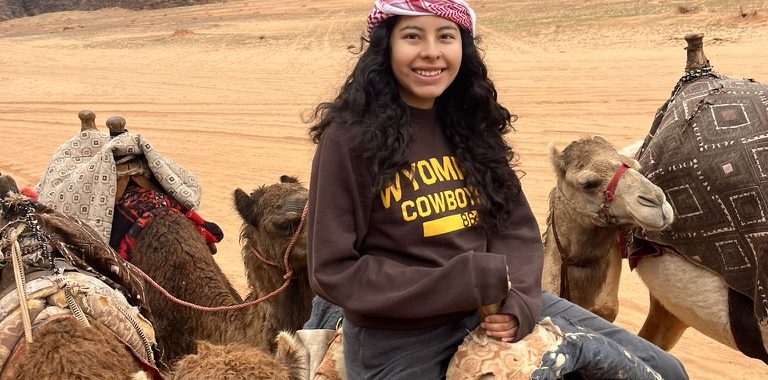In spring 2024, UW student America Martinez traveled to Amman, Jordan. She interned at a local non-governmental organization called Liwan Youth Space, which provides opportunities for Jordanian youth ages 18 to 35 to develop new skills and build community.
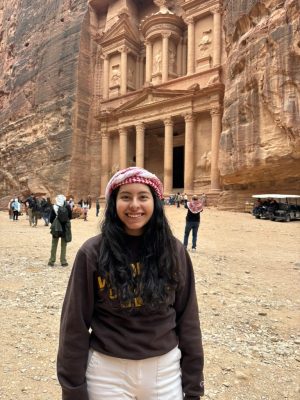
Martinez double majored in international studies and family and consumer sciences, with a minor in Arabic language and culture. She graduated from UW in May 2024.
Note: The following interview has been edited for length and clarity.
Tell me a little about your background. How did you choose family and consumer sciences (FCS) at UW?
I’ve always wanted to work in nonprofits and research — improve access to STEM for girls, for example, or improve unemployment rates.
When I was growing up, I loved teaching, but I didn’t want to be a teacher full time. The opportunity came up for me to work with FCS, working with families outside of the classroom. I really liked FCS and the opportunity to see how we could help families outside of the educational sphere.
Ironically, I’m a teacher now. I’m working as a full-time fifth grade English language arts teacher in Pueblo through an online teaching licensure and master’s program called Relay Graduate School of Education. I’m using this experience as a way to enrich my journey and work with different communities and their unique challenges.
What inspired you to pursue this particular internship?
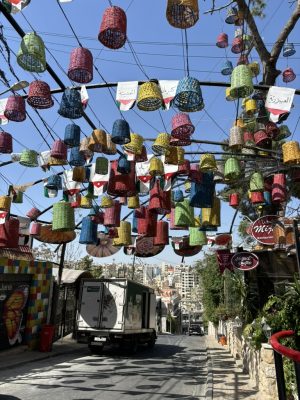
The Middle East is a niche area that’s not often explored at UW, but I took Arabic freshman year and fell in love with the culture and the language. I had a really fortunate opportunity to be the social media coordinator and then program coordinator in the Arabic and Middle East North Africa studies program housed in the School of Politics, Public Affairs and International Studies.
If I wanted to work with an international non-governmental organization, I needed to work in the Middle East and North Africa region and practice the language. It was to my benefit to have firsthand experience living and working in the area prior to the launch of my international career.
Describe a little of what your day-to-day routine looked like in this internship.
My supervisor thought it would be good for me to bounce from department to department within Liwan, so I got a chance to try out different tasks and projects during my time there. I started with accounting and finances — how they organize spreadsheets and reporting for grants.
Then I moved onto the health and nutrition unit, where their project was looking at online gender-based violence and digital justice in Jordan. After Ramadan, the students came together and filmed videos about gender-based violence in their communities. A lot of that was just cultural exchange, language exchange — I’d share about myself and they’d share about themselves.
In the economic empowerment unit, I gathered information about certain issues in the Jordanian community, looking at a lot of reports and statistics. Jordan’s unemployment [rate] is really high, especially for students with a four-year degree, and there’s a cultural stigma against trade jobs, so I was also comparing unemployment rates for different divisions.
Which of these units did you connect to the most?
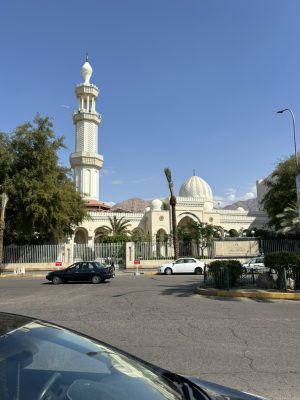
The economic empowerment was the biggest one for me. I thought it was the one I’d like least, but I actually really liked it because you could see the tangible results. It was a stark reality to see — you just spent many years in graduate school and can’t get a job because there’s just not enough employment opportunities. Several workshop participants happened to have a disability and shared the effectiveness and impact of the workshop on their self-efficacy. Those testimonials were really impactful to me.
What surprised you most?
The work-life balance is very different in Jordan than in the U.S. It’s both good and bad, I think. In the U.S., there’s high values of meritocracy; you work for your money and your success. People clock in at 8 and leave at 5. In Amman, people would leave early, but still meet job outcomes; everyone helps each other out and you’re a team.
Sometimes it was a bit of a challenge for me; it was like, “I want to do more though.” I went [to Amman] during Ramadan, and work hours are cut — we were working from 10 to 3, some people were leaving a little early, streets are empty during the day. It’s a huge shift.
But after Ramadan, we hit the ground running. In the filmmaker workshop, the youth got the foundational knowledge before Ramadan, then afterwards they had the knowledge they needed to start filming and writing scripts.
Were there any parts of Amman that reminded you of Wyoming?
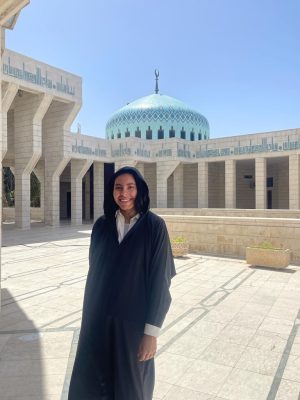
Yeah, we always joke about this! The hospitality in Wyoming is just like hospitality in the Middle East. Rural living is tough, and because of that we really build bonds, we rally together. That’s how the Middle East community operates as well. It’s all about taking care of each other, supporting each other.
They’re not just welcoming you in for a meal, they care about your safety and wellbeing so much; they care about what you have for breakfast, that you feel safe, that you’re warm enough at night, that you’re not hungry.
What was your biggest takeaway from the trip?
I went for a couple of reasons — to practice Arabic, work at an NGO, and experience a culture. It was also a trial run to see if I could enjoy living and working abroad.
My biggest takeaway is that international development, NGO work, and international aid are all very tricky and complicated. I’m conflicted about how the world of international aid operates and how these countries are delivering these programs. Are we actually empowering these communities, is giving this aid fixing the problems?
Liwan understood the barriers and challenges of their own communities and talked to communities to see what they really needed. I’m sure no international company wants to fund 10,000 dollars to teach people about resumes, but these are fundamentals. There’s a lot to learn about what strengths communities have. They’re very capable and creative in how they can approach problems already.
Did your experience in Jordan inform the way you’re approaching your current internship as a teacher in Pueblo?
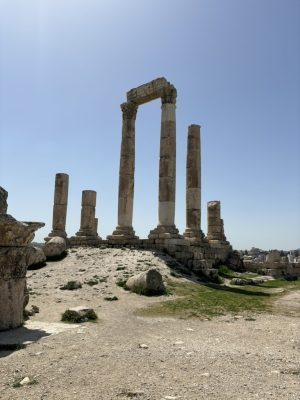
Yeah, I think so. I would say being well traveled, understanding different cultures, helped me recognize everyone will have different skills and assets in a classroom, rather than operating from a deficit-based mentality.
In Jordan, people are unemployed, but how can we recognize what skills they have to improve their employability? I’m working in a Title 1 school now, which means the school receives federal funding to support students from low-income families, aiming to improve academic achievement and provide a high-quality education. How can we empower students to see the strengths they have and take control of their learning?
Is there anything else you’d like to add?
Especially in today’s political climate, there’s definitely fear of going to the Middle East as an American and what that means for you. I just want to reiterate that I had a phenomenal experience. There were ups and downs, but I got really close with my host family, I made some amazing friendships, and I’m trying to go back next summer.
I’d just encourage people to get out there. Explore the world, don’t be afraid! There’s a lot that can be learned by pushing yourself out of your box, your comfort zone, and Wyoming.
This article was originally published in the 2024 issue of Roots & Ranges, an annual magazine published by the UW College of Agriculture, Life Sciences and Natural Resources.



